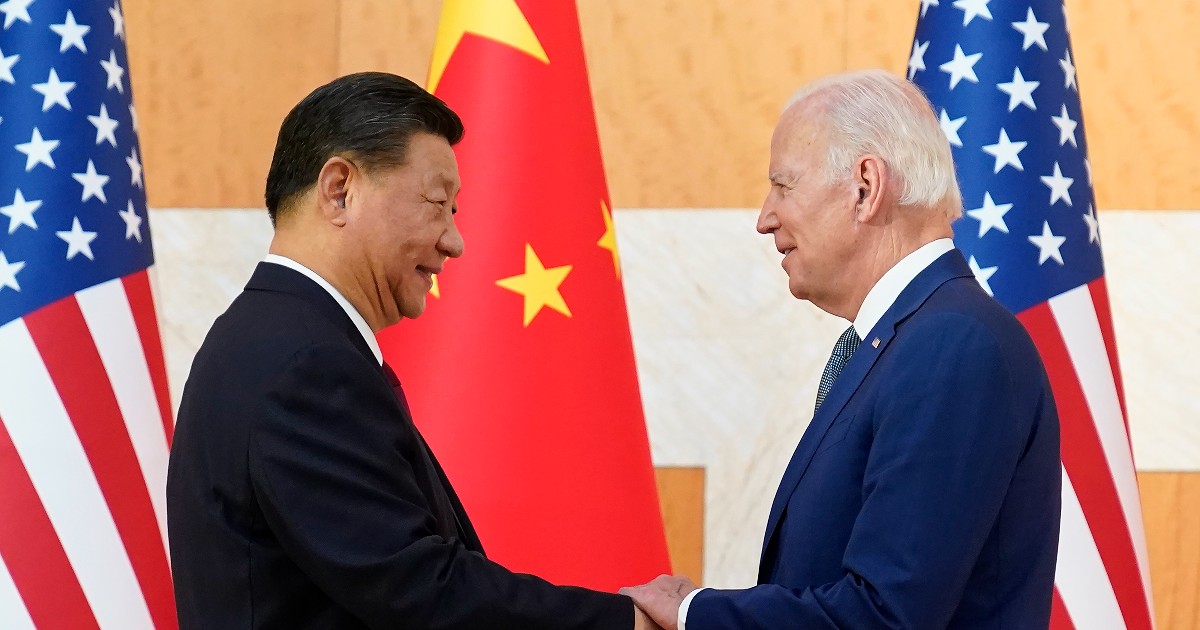by Roberto Iannuzzi*
The statements of these days of the president Chinese Xi Jinping and of his minister of esters Qin Gang, regarding the “containment” and “encirclement” of which China would be the victim at the hands of the West led by the USA, suggest a worrying deterioration in relations between the two world superpowers. A deterioration which, added to the clash between NATO and Russia which has its epicenter in Ukraine, favors the convergence between Moscow and Beijing.
Immediately rejected by the American president Joe Bidenwhich arguably has it defined as “non-rational”, the so-called “peace plan” on Ukraine presented by Beijing (actually a programmatic document expressing the Chinese position on the conflict) already seems to belong to the past. Once again, however, we are faced with a serious problem of interpretation on the part of the western press.
Just as it underestimated the aforementioned statements by Xi Jinping and his minister (which signal an epochal change of tone, Beijing’s acknowledgment that the US does not accept coexistence with China on an equal basis and mutual respect), similarly misunderstood, and belittled, the programmatic document about Ukraine. In the media hype about first anniversary of the Russian invasion, which characterized the entire week culminating with the recurrence of February 24, the start date of the conflict, the carefully studied and calculated sequence with which Beijing issued not one, but three documentsthe last of which was precisely the so-called “peace plan” (according to the erroneous definition of the Western press).
Il first documentwhich appeared on February 20 under the title “US Hegemony and its Perils”, is an open complaint of what Beijing defines as “hegemonic practices” of the USA since the end of the Second World War and of the dangers they would mean for global peace and stability. According to the document, to preserve its hegemony, the United States has interfered in the internal affairs of other countries, often destabilizing them, and provoking “color revolutions” have fomented regional conflicts and even launched wars of their own initiative under the pretext of promoting democracy, freedom and human rights.
Il second documenttitled “Global Security Initiative” (Gsi) and released the next day, acknowledging the continued deterioration of the international stability proposes itself as a platform to face the many global challenges and resolve conflicts through a multilateral and mutually beneficial approach (“win-win”, according to a formula dear to Chinese rhetoric).
To this end, the Gsi formulates some key conceptsincluding respect for the sovereignty and territorial integrity of all countries, the principle of non-interference in internal affairs, effective implementation of the UN Charter, promotion of “indivisible security” (principle dear to Russia and key element at the basis of every pan-European security agreement starting from the Helsinki agreements of 1975, then sunk by the expansion of NATO, according to which the security of a country must not come at the expense of that of the others), peaceful resolution of conflicts through dialogue e consensual acknowledgment of the fact that “a nuclear war cannot be won and must never be fought”.
Finally, on February 24, the Chinese foreign ministry released the aforementioned document in twelve points expressing Beijing’s position on how to facilitate a political solution to the Ukrainian conflict. Without having the pretension to constitute a detailed road map for the achievement of peacethe plan sets out some general principles already set out in the GSI (respect for sovereignty, indivisible security and abandonment of the “cold war mentality”) and some practical measures such as the cease-fire and resumption of negotiations, lifting of sanctions, facilitation of exports of grain and post-conflict reconstruction.
Taken together, these documents are relevant because with them Beijing, after denouncing the excesses of Washington’s hegemonic role, proposes an architecture of international security “post-American” founded on the UN Charter and on multilateralism, in which, however, China will inevitably have a “inspirational role”. In the document on Ukraine, reiterating concepts dear to Russia such as “indivisible security” and “removal of unilateral sanctions”, Beijing confirms its intention not to give up a firm partnership with fly.
Overall, these documents are disruptive as they represent the proposal in nuce of a new world order and at the same time they testify to Beijing’s decision to acquire a political role at the international level – which for decades Chinese leaders have been reluctant to assume, preferring to devote their efforts to China’s economic development. If it is true that these documents were immediately belittled and even derided in the West, it should be noted that their real target is non-Western countries, those of the so-called “South of the world” which represent the majority of the world‘s population and which Washington, despite its efforts, has failed to bring to its side in the Ukrainian conflict.
An “alternative” role for Beijing to the one that Washington has played internationally since the post-war period is what really scares the American leadership and what prompted Biden to reject the Chinese “plan” without delay.
*Aauthor of the book “If Washington loses control. Crisis of American unipolarity in the Middle East and in the world” (2017)
